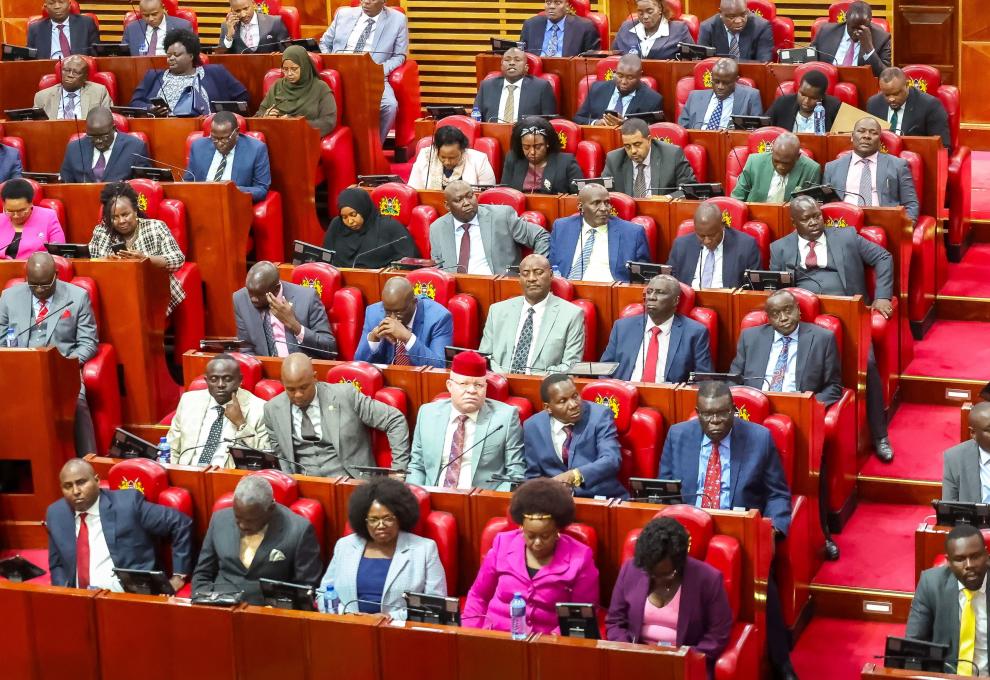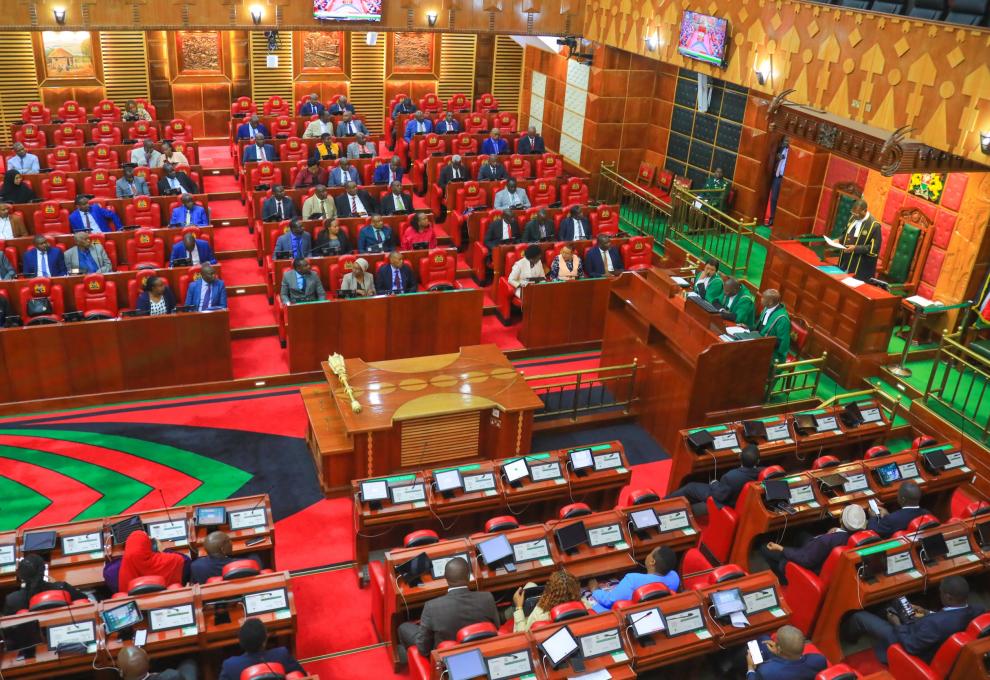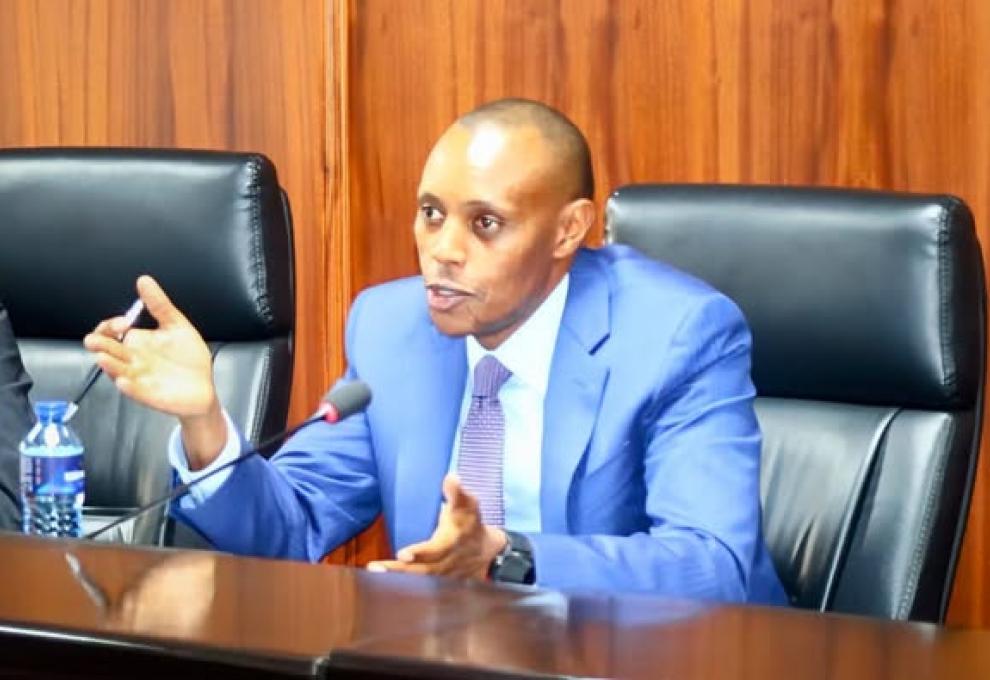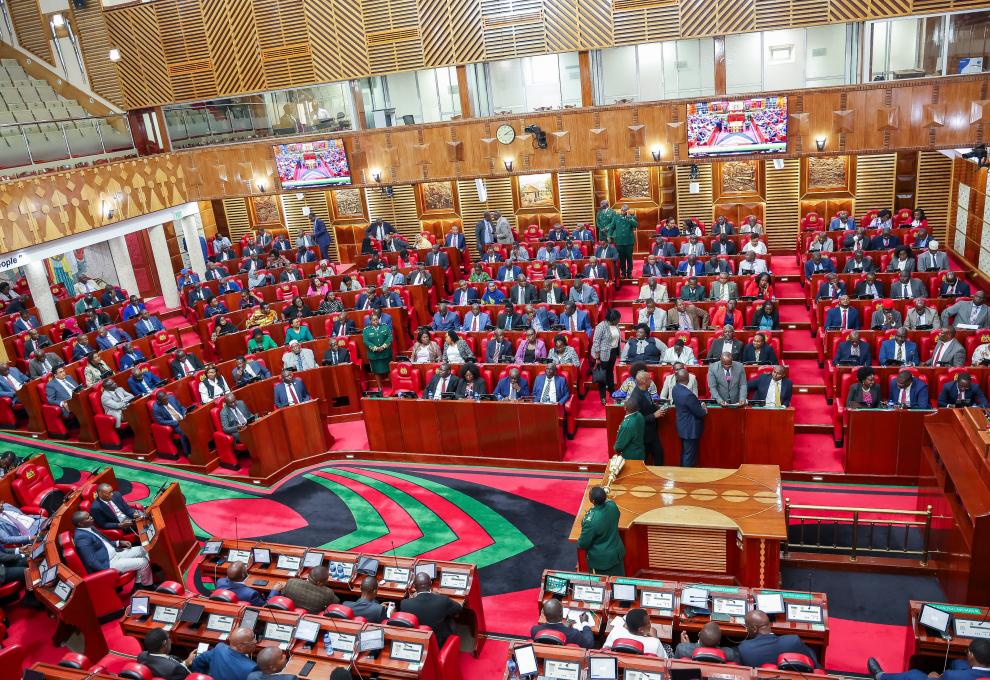𝐁𝐈𝐋𝐋 𝐒𝐄𝐄𝐊𝐈𝐍𝐆 𝐓𝐎 𝐄𝐍𝐇𝐀𝐍𝐂𝐄 𝐃𝐈𝐕𝐄𝐑𝐒𝐈𝐓𝐘 𝐀𝐍𝐃 𝐄𝐐𝐔𝐀𝐋 𝐎𝐏𝐏𝐎𝐑𝐓𝐔𝐍𝐈𝐓𝐘 𝐈𝐍 𝐏𝐔𝐁𝐋𝐈𝐂 𝐒𝐄𝐑𝐕𝐈𝐂𝐄 𝐁𝐄𝐅𝐎𝐑𝐄 𝐓𝐇𝐄 𝐇𝐎𝐔𝐒𝐄 𝐅𝐎𝐑 𝐃𝐄𝐁𝐀𝐓𝐄
Public entities will have to submit annual reports to Parliament, providing comprehensive details on their adherence to Kenya's diversity and equal opportunity standards within the public service if the Public Service (Values and Principles) (Amendment) Bill is passed by the House and assented to into law.
The Bill aims to uphold the Constitutional provisions on representation and equal opportunities for all citizens.
Hon. Rahim Dawood (North Imenti), the sponsor of the Bill, says the legislation focuses on promoting diversity in Kenya's public service by ensuring fair representation.
These annual reports are crucial in shedding light on details such as total number of employees, their gender distribution, age demographics, counties of birth, and counties of residence.
“By mandating entities to submit annual reports and promoting transparency in employment practices, this Bill strives to create a more inclusive and representative public service sector, aligning with the nation's Constitutional values and principles,” said Hon. Dawood.
According to Hon. Dawood, by making such data available, Parliament can address existing disparities and create a more balanced and inclusive public service sector.
“The primary objective of this Bill is to ensure that the public service reflects the rich diversity of Kenyan communities and provides equal opportunities for both men and women, individuals from all ethnic backgrounds, and persons with disabilities,” he said.
Hon. Dawood pointed out that despite the constitutional requirement that persons with disabilities make up five percent of the workforce, as of 2014, this number was barely at 1.5 percent, falling significantly short of the target.
Additionally, many institutions are failing to meet the two-third gender rule, with women being underrepresented at less than 30 percent.
















